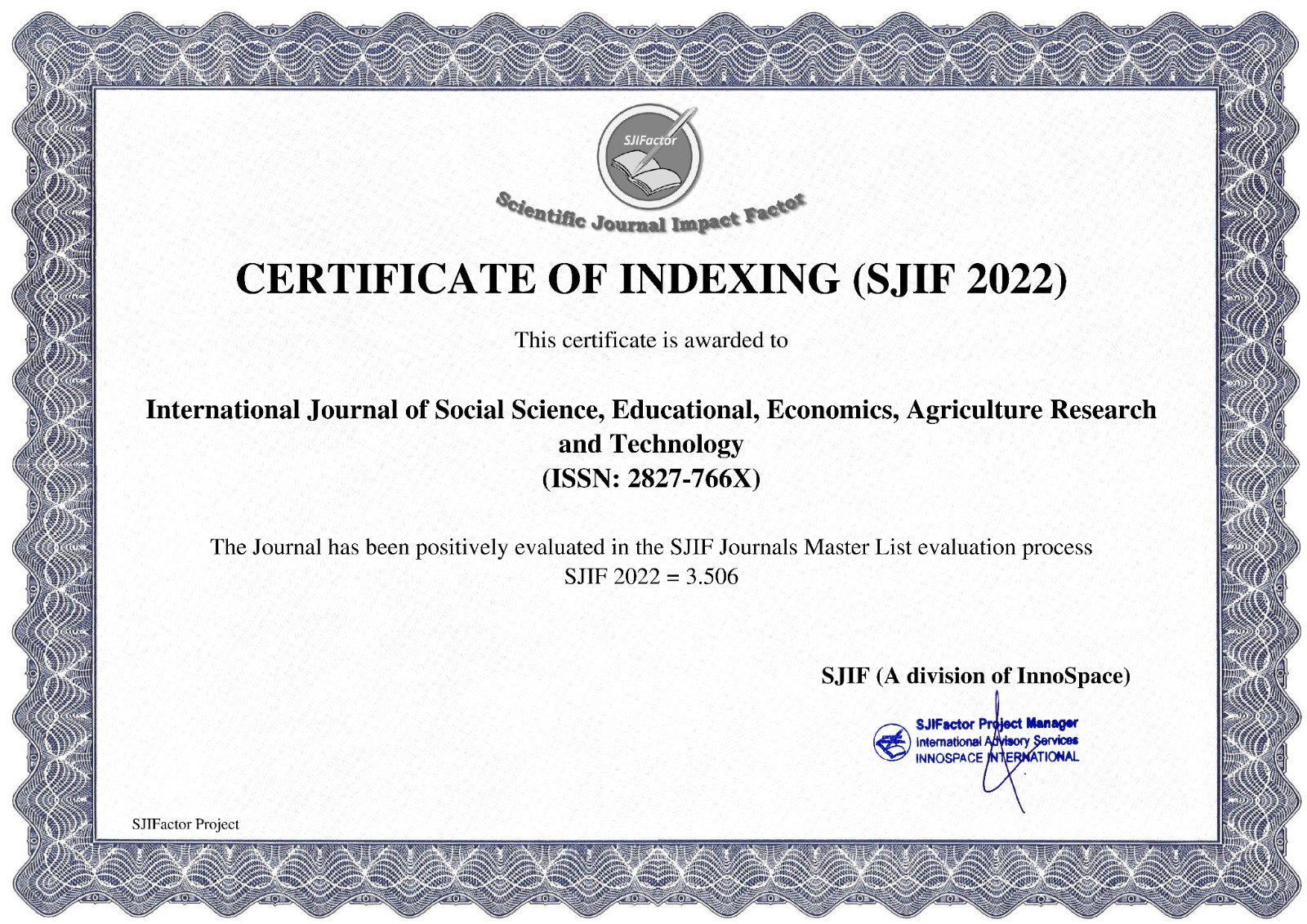EMPOWERING ECONOMIC RESILIENCE THROUGH ECONOMIC INTELLIGENCE OPTIMIZATION
Main Article Content
Alifah Kusumaningrum
Saparuddin Mukhtar
Dwi Ringga Edwid Dian Negara
Yeti Lastuti
Hanif Afif Naufal
Lathiefah Rabbaniyah
In the face of uncertain global dynamics, national economic resilience has become a strategic issue that demands a response based on accurate data and information. This study aims to explore the relationship between Economic Intelligence (EI) and Economic Resilience (ER) and to formulate a strategy for optimizing EI as a proactive instrument in mitigating economic risks. Using an exploratory qualitative approach through a systematic literature review, this study analyzes various scientific sources and official institutional reports related to the role of EI in strengthening economic resilience, particularly in Indonesia. The results indicate that optimizing EI plays a crucial role in early crisis detection, supporting evidence-based policymaking, and increasing the resilience of micro, small, and medium enterprises (MSMEs) to economic shocks. However, EI implementation still faces various obstacles such as low data literacy, limited technological infrastructure, and the lack of integration of cross-institutional information systems. Therefore, a comprehensive strategy is needed that encompasses strengthening data infrastructure, developing human resource capacity, reforming data regulations, and intersectoral collaboration. This study provides a conceptual contribution to the development of an EI and ER framework and offers policy recommendations to support resilient, inclusive, and sustainable economic development.
Anis, A., & Susdarwono, E. T. (2019). 21 ST CENTURY SKILLS OF ECONOMIC INTELLIGENCE RELATED TO THE RESILIENCE OF THE NATIONAL ECONOMY. Jurnal Pendidikan Ilmu Sosial, 29(2).
Bazile, J., & Su, Z. (2024). Strategic Intelligence of Small and Medium Enterprises Embedded in Global Supply Chains: A Framework for Resilience in the Face of Systemic Risks. International Journal of Business and Management, 19(3), 179. https://doi.org/10.5539/ijbm.v19n3p179
Brian, D. (2024). Financial Crisis of 2007-2008. Britannica Money. https://www.britannica.com/money/financial-crisis-of-2007-2008
Burunsuz, K. S. (2021). Features of Strategic Analysis of Energy Industry Enterprises. Collection of Scientific Publications NUS, 1(1), 99–105. https://doi.org/10.15589/znp2021.1(484).14
Capello, R., Caragliu, A., & Fratesi, U. (2015). Spatial heterogeneity in the costs of the economic crisis in Europe: are cities sources of regional resilience? Journal of Economic Geography, 15(5), 951–972. https://doi.org/10.1093/jeg/lbu053
Gu, J., & Liu, Z. (2024). A Study of the Coupling Between the Digital Economy and Regional Economic Resilience: Evidence from China. PLoS ONE, 19(1 January), 1–30. https://doi.org/10.1371/journal.pone.0296890
Hromozdova, L., Dubrovyk-Rokhova, A., & P. (2021). Economic Intelligence in the System of International Economic Relations: Characteristics of the Current Situation and Problems of Development. Technology Audit and Production Reserves, 4(4(60)), 29–33. https://doi.org/https://doi.org/10.15587/2706-5448.2021.238030
Ji, Z., & Huang, Y. (2024). Does Digital Transformation Promote Economic Resilience? Urban-Level Evidence from China. Heliyon, 10(4), e26461. https://doi.org/10.1016/j.heliyon.2024.e26461
Kharas H., T. A. (2020). The Triple Economic Shock of COVID-19 and Priorities for an Emergency G-20 Leaders Meeting. Brookings.
Lei, Y., Liang, Z., & Ruan, P. (2023). Evaluation on the Impact of Digital Transformation on the Economic Resilience of the Energy Industry in the Context of Artificial Intelligence. Energy Reports, 9, 785–792. https://doi.org/10.1016/j.egyr.2022.12.019
Oprea, F., Onofrei, M., Lupu, D., Vintila, G., & Paraschiv, G. (2020). The Determinants of Economic Resilience. The Case of Eastern European Regions. Sustainability (Switzerland), 12(10), 1–11. https://doi.org/10.3390/su12104228
Pan, S. C., Hu, T. S., You, J. X., & Chang, S. L. (2023). Characteristics and Influencing Factors of Economic Resilience in Industrial Parks. Heliyon, 9(4), e14812. https://doi.org/10.1016/J.HELIYON.2023.E14812
Rocha, O., Kamphambale, D., MacMahon, C., Coetzer, J. H., & Morales, L. (2023). The Power of Education in a Globalised World: Challenging Geoeconomic Inequalities. Peace Review, 35(4), 708–723. https://doi.org/10.1080/10402659.2023.2270501
Saksono, H., Humalanggi, M., Lantapon, N., & Butolo, I. (2023). The Role of Economic Intelligence in Accelerating Welfare of Gorontalo Province. Jurnal Bina Praja, 15(3), 543–556. https://doi.org/10.21787/jbp.15.2023.543-556
Spillman, L. J. (2023). The 2008 Global Financial Crisis and Covid-19 Downturn Parallels and Lessons. Organizational Business, 6. https://doi.org/E-ISSN2621-654X
Wen, H., Liu, Y., & Zhou, F. (2024). New-type infrastructure and urban economic resilience: Evidence from China. International Review of Economics & Finance, 96, 103560. https://doi.org/https://doi.org/10.1016/j.iref.2024.103560
Zhang, B., Yang, X., Tong, R. (2022). Health Impacts of Air Pollution in Chinese Coal-Based Clean Energy Industry: LCA-Based and WTP-Oriented Modeling. Environ. Sci. Pollut, 29, 67924–67940. https://doi.org/https://doi.org/10.1007/s11356-022-20590-7






















